March 6, 2014
Interview conducted at Nikkei National Museum and Cultural Centre by Howard Shimokura and Ellen Schwartz; notes taken by Ellen Schwartz
Before Tashme, the family lived in Fanny Bay on Vancouver Island. Mas started elementary school there and completed grade 1 before being relocated.
His family got on a ship from Vancouver Island in spring 1942 and was taken to Hastings Park. His father was sent to a road camp at Blue River, north of Kamloops, and later joined the family at Tashme.
The family lived on 5th Avenue in Tashme from 1942 to 1946. Mas was the second oldest of five children when they arrived at Tashme, and two more siblings were born in the camp. His family got a whole house because they were a large family.
Mas completed roughly grades 2 or 3 to grades 4 or 5 in Tashme. The teacher’s name was Miss Yoshiko Nikaido and school was in the D Building. Mas didn’t like school: “I’d rather be outside playing.”
After Tashme, the family went to Spuzzum.
Mas’s dad was a highrigger at Tashme and also at Spuzzum. He supplied the sawmill with wood. The sawmill was small.
People had to use coupons to buy everything in the camp. They bought the coupons in the Commission office. Some items (rice and sugar) were rationed.
Mas used to tag along with the fellow who ran the horse and sled to get rides. That man used to deliver wood to the houses. There was a pig barn and a slaughterhouse near the garage. Mas sometimes saw the pigs being slaughtered.
In the winter, he and his friends went skating on the lake opposite from the slide. They could walk to the lake. His parents bought him and his older brother skates for $5.50 a pair. His dad must have worked several days to pay for them. His parents would have ordered the skates from a catalogue.
Mas used to swim in the slough at the back of the camp; it wasn’t as fast-running as the creek. He played marbles and thinks he played baseball, but didn’t fish.
Mas remembers going to the bathhouse. He thinks that some bathhouses were for men and others for women.
He went to Japanese school, even though it was not officially allowed.
His mother looked after the house and children; she didn’t work outside the home.
Mas was a Cub Scout and a Boy Scout at Tashme. The Scouts once held a torchlight parade, and Mas carried a torch: a pole with a rag soaked in fuel.
The work people did in Tashme included logging, working in the sawmill, farming, raising the hogs, and working in the store, the offices and the shoyu and miso factory. There were lots of skilled tradesmen, but they couldn’t do their normal work at Tashme.
Mas had his tonsils taken out in the hospital at camp, somewhere between the ages of 7 and 10. His mother gave birth at the hospital to two children, two years apart.
Mas’s dad’s uncle also lived at the camp with his wife. That uncle had four daughters. He had owned a dry cleaning business on Hastings Street in Vancouver. He had earlier come to Canada on a sailing ship – it took three months to get there from Japan. A second or third cousin, Mary Yano, a nurse at the hospital, married the guy who worked at the powerhouse, Matsui.
Someone in the neighbourhood had a radio.
Inside his house there was a tin potbellied stove. Mas doesn’t remember if that was used for cooking. There was no electricity; they had propane lights. Mas didn’t live with electricity until he was 16 years old. There was a boardwalk in front of the house that led to the bathhouse.
When the family moved to Spuzzum, Mas had to go to Hope for high school. He rode the bus on the old Cariboo Highway. In 1948, there were big floods and Mas missed about a month of school because of water on the road.
When the choice came whether to go to Japan, Mas’s father said he wasn’t going back there. He even talked some Tashme families out of going back, and later they were grateful. Both of Mas’s parents had been born in Japan, but neither wanted to go back. One of his sisters was born in Japan and never came to Canada. His mother had left her there when she came to Canada; she expected to go back for her daughter but was never able to. That sister was adopted by her mother’s brother and stayed in Japan.
Mas’s family celebrated Christmas in Tashme. They hung up stockings. Mas has no idea how his mother found treats to put in the stockings.
They watched Japanese movies in D Building. Mas thinks they were silent and that the projectionist provided all the dialogue. People also put plays on.
Mas remembers foxes or other fur-bearing animals being raised in sheds on “Fox Alley” in the camp. His family had a small pen for rabbits, which they raised first as pets and then for food. His dad slaughtered them.
